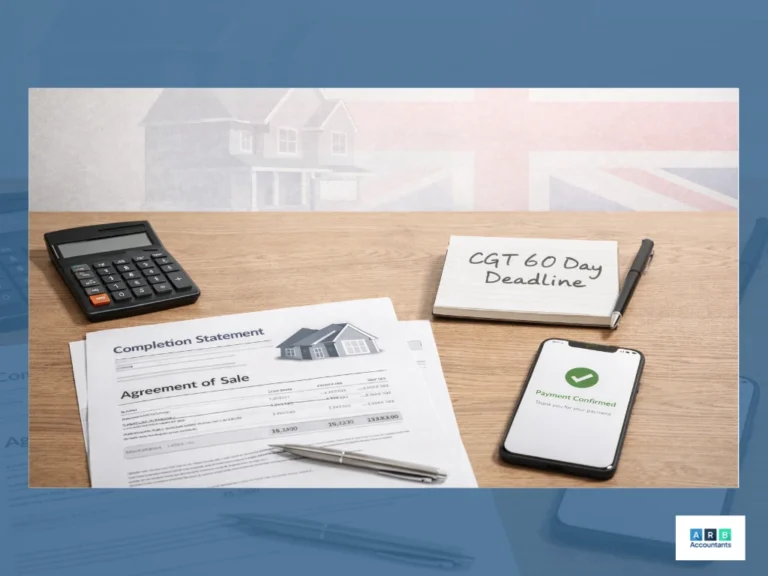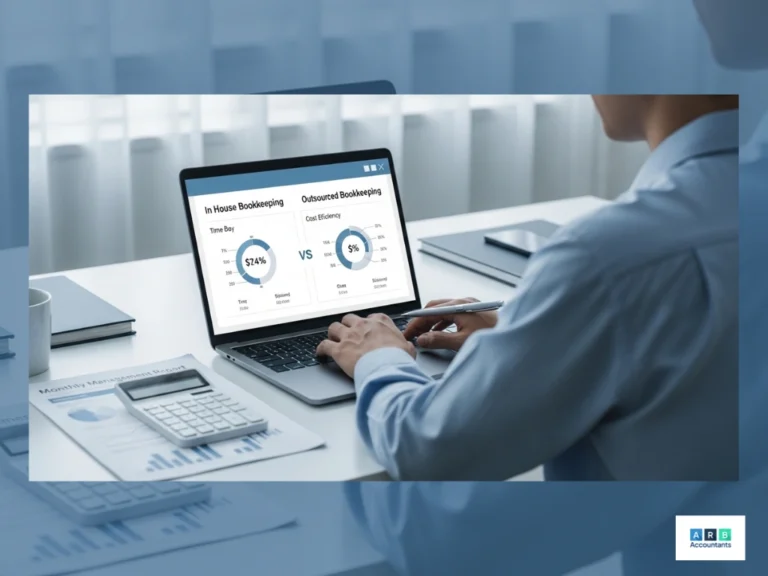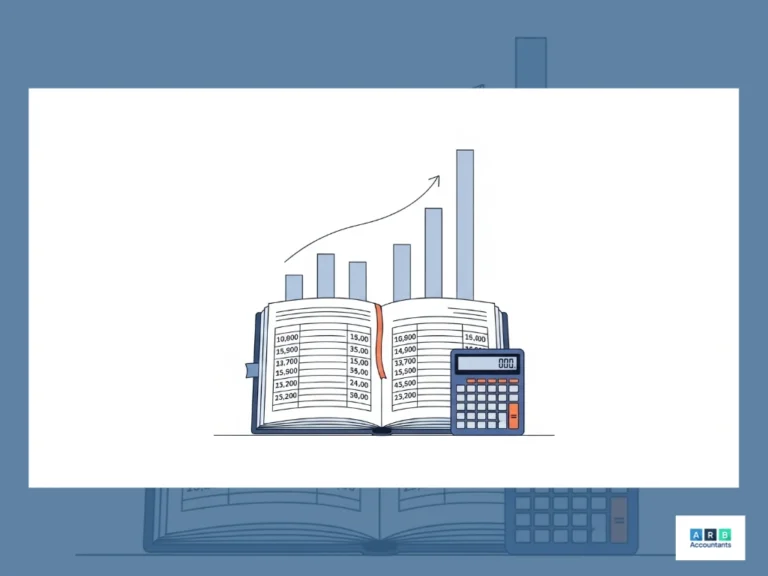
Do I Need to Register For Self Assessment?
If you’re self-employed or have additional sources of income, you might be wondering: Do I need to register for self-assessment? Understanding your tax obligations is crucial to staying compliant with HM Revenue and Customs (HMRC) and avoiding costly penalties. In this blog, we’ll guide you through everything you need to know about registering for self-assessment, key deadlines, and how to file your tax return correctly.
- What is Self-Assessment?
- When to Register for Self-Assessment
- How Do I Check If I Need Self-Assessment?
- How do I know if I need to register for Self-Assessment?
- How do I register for Self-Assessment?
- HMRC Self-Assessment Registration Process
- Register for Self-Assessment before HMRC Deadline
- Late Registering for Self-Assessment
- Final Thoughts: Do I Need to Register for Self-Assessment?
- Self Assessment Support and Tax Advice with ARB Accountants
- Frequently Asked Questions
What is Self-Assessment?
Self-Assessment is a system used by HMRC to collect income tax from those who are not part of an automatic tax system like Pay As You Earn (PAYE). Those who are self-employed, business partners, and anyone with alternative sources of income that are not automatically reported to HMRC need to self-report their income by registering for and filing a Self-Assessment tax return.
The Self-Assessment tax return shows how much you have earned, and from what sources, over the course of a tax year. It also allows you to claim income tax reliefs and benefits where applicable.
When to Register for Self-Assessment
If you need to submit a Self-Assessment tax return, you must register by the deadline to avoid penalties. The deadline for registration is 5 October following the end of the tax year in which you started earning untaxed income. For example, if you earned untaxed income in the year 2024-2025, you need to register by 5th October 2025.

“Early registration for Self-Assessment is essential if you don’t want to incur unnecessary stress, missed deadlines, or penalties from HMRC. If you’re self-employed, have rental or freelance income, or receive income from abroad, registering early provides sufficient time to obtain your UTR (Unique Taxpayer Reference) and sort out your records before filing season starts. Doing it too late usually means rushing to meet deadlines—or worse, being penalised for not registering at all.”
How Do I Check If I Need Self-Assessment?
You can check if you are required to register by using the HMRC Self-Assessment checker on the GOV.UK website. Generally, you need to register if you have self-employed income over £1,000, rental income, or other untaxed earnings.
It is advisable to register as soon as possible to ensure you receive your Unique Taxpayer Reference (UTR) number in time. Without the UTR number, you would be able to file a self assessment.

“Registering for Self-Assessment isn’t just a formality—it’s your safeguard against penalties and a step toward financial control.”
How do I know if I need to register for Self-Assessment?
You will need to complete a Self-Assessment tax return if in the last tax year:
- You have earned more than £1000 through self-employment as a sole trader
- You are a part of a business partnership
- You have earned more than £1,000 from renting out a property that you personally own
- Your income from savings was over £500
- You have some forms of foreign income
These are the most common circumstances where individuals are liable to register and complete Self- Assessment tax returns. However, this list is not exhaustive.
READ RELATED ARTICLE: Self-Employment Income Support Scheme
The most accurate way of determining whether you need to complete a tax return is by completing the Self-Assessment questionnaire on the GOV.uk website.
I am both employed and self-employed – do I still need to register for Self-Assessment?
Yes. If you are working on a self-employed basis alongside your employment you will need to complete a Self-Assessment tax return in order to declare the income procured as a sole trader unless your trading income was less than £1,000 in the financial year.

How do I register for Self-Assessment?
If you have never submitted a Self Assessment Tax Return before, or did not submit a return the previous tax year, you will first need to register for Self- Assessment. There are four different ways of registering:
- As self-employed
- Not self-employed but need to declare income
- As a partner or partnership
- As a director of a company
You can find more details about the requirements for each form of registration on the Government’s website.

“Understanding whether you need to register for Self-Assessment isn’t just about ticking boxes—it’s about protecting your finances, avoiding penalties, and staying in control of your income.”

HMRC Self-Assessment Registration Process
Once you have registered, HMRC will send you a Unique Taxpayer Reference (UTR) number, which you will need to file a tax return. Your UTR letter will also contain details on how to set up a Government Gateway account, which you’ll need if you would like to complete your tax return online.
What Our Customers Say

Thank you so much to Saurabh and the team. This was my first time using an accountant for my Self Assessment Tax Return. The process was very simple and Saurabh broke down all the details and made it really easy to understand. Saurabh was also super prompt in responding to my many questions. Such a great first-time experience, and I look forward to continuing with ARB Accountants in the future.
Register for Self-Assessment before HMRC Deadline
Tax returns are submitted in relation to tax years, which starts on April 6 each year and end on April 5 the following year. The deadlines for the upcoming tax year are as follows:
- You’ll need to pay the tax you owe by midnight, 31 January
- If you have not completed a tax return in the last tax year, your Self-Assessment Registration needs to be completed by 5 October
- Paper tax returns need to be submitted by midnight, 31 October
- Online tax returns need to be submitted by midnight, 31 January
Late Registering for Self-Assessment
Failing to meet registration deadlines can result in penalties. If you miss the 5 October registration deadline, you should register as soon as possible to minimize any potential fines. If you fail to submit your Self-Assessment tax return on time, you will be subject to penalties:
- A £100 late filing penalty if your tax return is late
- For delays over 3 months, penalties of £10 per day apply
If you have a reasonable excuse for late filing or late payment, you can submit an appeal against the penalty. You can find out more about penalties on the GOV.uk website.

“Registering for self-assessment on time is very important; otherwise, missing the deadlines might attract penalties. HMRC procedures are quite strict, and even failing to meet one simple date may incur penalties. Late registration means not only incurring fines for late payment but also the levying of interest on unpaid taxes.”
Final Thoughts: Do I Need to Register for Self-Assessment?
To answer the central question: Do I need to register for Self-Assessment?
Yes, if you earn income outside the PAYE system—including self-employment, rental income, or any foreign income—you are required to register. As a UK resident, you must declare your worldwide income to HMRC. Failure to register or meet deadlines can result in penalties, so it’s prudent to stay ahead of the process.
READ RELATED ARTICLE: Self-Employment Income Support Scheme
If you’re uncertain, consulting a tax professional or accountant is advisable. They can provide guidance tailored to your specific situation and ensure you remain fully compliant with HMRC rules, thereby avoiding future stress.
Self Assessment Support and Tax Advice with ARB Accountants
We know that the process of registering and completing your Self-Assessment can be a stressful ordeal. Our Self-Assessment Service is designed to help you understand and navigate your tax returns, from registration to payment. Our chartered accountants will ensure that your tax returns are filed correctly and on time, and that you stay compliant with the latest regulations. Book your free consultation today to find out how ARB Accountants can help you stay on top of your finances.
SELF ASSESSMENT: ARB Accountants Announce Sponsorship of Eastwood Cricket Club





